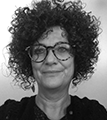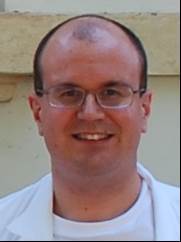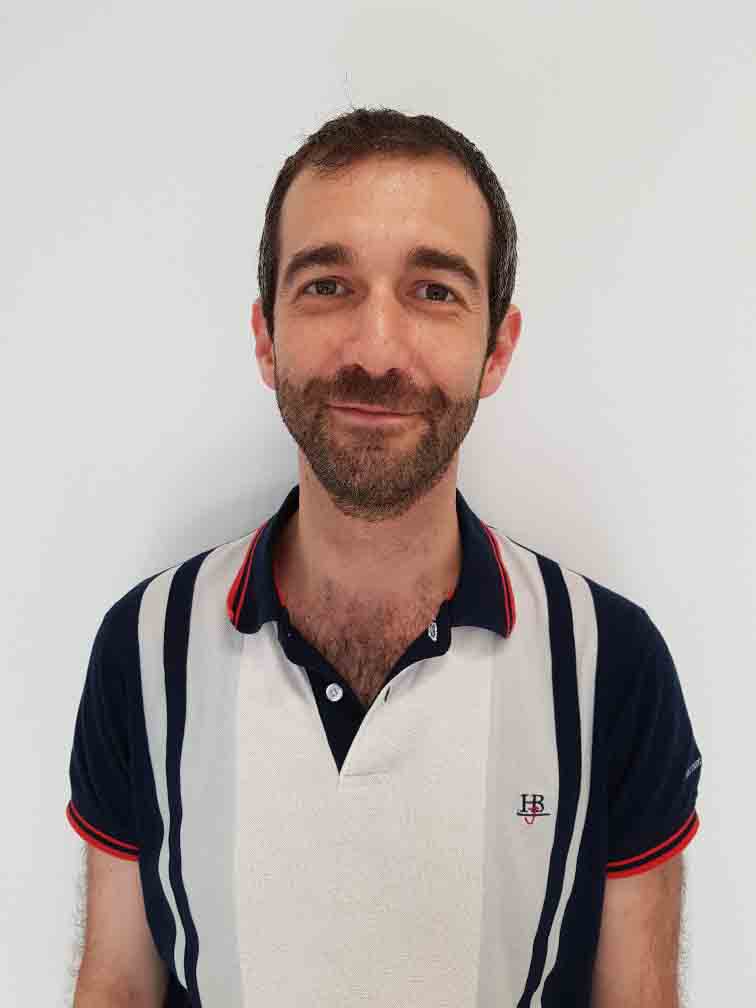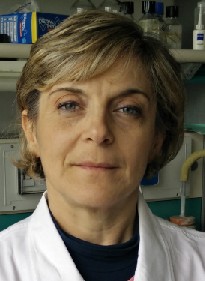Studying at the University of Verona
Here you can find information on the organisational aspects of the Programme, lecture timetables, learning activities and useful contact details for your time at the University, from enrolment to graduation.
Academic calendar
The academic calendar shows the deadlines and scheduled events that are relevant to students, teaching and technical-administrative staff of the University. Public holidays and University closures are also indicated. The academic year normally begins on 1 October each year and ends on 30 September of the following year.
Course calendar
The Academic Calendar sets out the degree programme lecture and exam timetables, as well as the relevant university closure dates..
| Period | From | To |
|---|---|---|
| 1 SEMESTRE PROFESSIONI SANITARIE | Oct 3, 2022 | Dec 23, 2022 |
| 1° e 2° semestre (corsi annuali) PROFESSIONI SANITARIE | Oct 3, 2022 | Sep 30, 2023 |
| 2 SEMESTRE PROFESSIONI SANITARIE | Jan 9, 2023 | Sep 30, 2023 |
| Session | From | To |
|---|---|---|
| INF TN SESSIONE INVERNALE (2) | Dec 21, 2022 | Jan 23, 2023 |
| INF TN SESSIONE INVERNALE (1-3) | Jan 9, 2023 | Jan 31, 2023 |
| INF TN SESSIONE ESTIVA (3) | Apr 6, 2023 | Apr 20, 2023 |
| INF TN SESSIONE ESTIVA (1) | Apr 13, 2023 | Apr 26, 2023 |
| INF TN SESSIONE ESTIVA (2) | Apr 19, 2023 | Apr 28, 2023 |
| INF TN SESSIONE ESTIVA (2) 2 PARTE | Jul 12, 2023 | Jul 31, 2023 |
| INF TN SESSIONE ESTIVA (1-3) 2 PARTE | Jul 17, 2023 | Jul 31, 2023 |
| INF TN SESSIONE AUTUNNALE (2-3) | Sep 7, 2023 | Sep 29, 2023 |
| INF TN SESSIONE AUTUNNALE (1) | Sep 8, 2023 | Sep 29, 2023 |
| Session | From | To |
|---|---|---|
| SESSIONE AUTUNNALE | Oct 1, 2023 | Nov 30, 2023 |
| SESSIONE PRIMAVERILE | Mar 1, 2024 | Apr 30, 2024 |
| Period | From | To |
|---|---|---|
| FESTIVITA' DI OGNISSANTI | Nov 1, 2022 | Nov 1, 2022 |
| FESTIVITA' IMMACOLATA CONCEZIONE | Dec 8, 2022 | Dec 8, 2022 |
| VACANZE DI NATALE | Dec 24, 2022 | Jan 8, 2023 |
| VACANZE DI PASQUA | Apr 7, 2023 | Apr 10, 2023 |
| FESTA DELLA LIBERAZIONE | Apr 25, 2023 | Apr 25, 2023 |
| FESTA DEL LAVORO | May 1, 2023 | May 1, 2023 |
| Description | Period | From | To |
|---|---|---|---|
| INF TN TIR 2 ANNO 1 ESP | INF TN TIR 2 ANNO 1 ESP | Jan 24, 2023 | Feb 25, 2023 |
| INF TN TIR 2 ANNO 2 ESP | INF TN TIR 2 ANNO 2 ESP | Mar 6, 2023 | Apr 14, 2023 |
| INF TN TIR 3 ANNO 1 ESP | INF TN TIR 3 ANNO 1 ESP | Apr 21, 2023 | Jun 1, 2023 |
| INF TN TIR 1 ANNO 1 ESP | INF TN TIR 1 ANNO 1 ESP | Apr 27, 2023 | Jun 1, 2023 |
| INF TN TIR 3 ANNO 2 ESP | INF TN TIR 3 ANNO 2 ESP | Jun 7, 2023 | Jul 13, 2023 |
| INF TN TIR 1 ANNO 2 ESP | INF TN TIR 1 ANNO 2 ESP | Jun 8, 2023 | Jul 13, 2023 |
| INF TN TIR 2 ANNO 3 ESP | INF TN TIR 2 ANNO 3 ESP | Sep 1, 2023 | Oct 6, 2023 |
| INF TN TIR 3 ANNO 3 ESP | INF TN TIR 3 ANNO 3 ESP | Sep 1, 2023 | Oct 17, 2023 |
Exam calendar
Exam dates and rounds are managed by the relevant Medicine Teaching and Student Services Unit.
To view all the exam sessions available, please use the Exam dashboard on ESSE3.
If you forgot your login details or have problems logging in, please contact the relevant IT HelpDesk, or check the login details recovery web page.
Should you have any doubts or questions, please check the Enrollment FAQs
Academic staff
 mariangelabassetti@gmail.com
mariangelabassetti@gmail.com
 anita.bevilacqua@apss.tn.it
anita.bevilacqua@apss.tn.it
 cembrani@apss.tn.it
cembrani@apss.tn.it
 gabriele.chini@univr.it
gabriele.chini@univr.it
 dellai@tn.apss.tn.it
dellai@tn.apss.tn.it
 loredana.pancheri@univr.it
loredana.pancheri@univr.it
 marina.pecoraro@apss.tn.it
marina.pecoraro@apss.tn.it
 nicola.pelizzari@univr.it
nicola.pelizzari@univr.it
 elda.righi@univr.it
elda.righi@univr.it
 giuliano.rosani@univr.it
giuliano.rosani@univr.it
 cinzia.vivori@apss.tn.it
cinzia.vivori@apss.tn.it
Study Plan
The Study Plan includes all modules, teaching and learning activities that each student will need to undertake during their time at the University.
Please select your Study Plan based on your enrollment year.
1° Year
| Modules | Credits | TAF | SSD |
|---|
Professional Laboratories (1st year)
2° Year activated in the A.Y. 2023/2024
| Modules | Credits | TAF | SSD |
|---|
Professional Laboratories (2nd year)
3° Year It will be activated in the A.Y. 2024/2025
| Modules | Credits | TAF | SSD |
|---|
Professional Laboratories (3rd year)
Corso di Rianimazione di Base con utilizzo del defibrillatore semiautomatico
- Corso di Rianimazione di Base con utilizzo del defibrillatore semiautomatico [Gruppo 1]
- Corso di Rianimazione di Base con utilizzo del defibrillatore semiautomatico [Gruppo 2]
- Corso di Rianimazione di Base con utilizzo del defibrillatore semiautomatico [Gruppo 3]
- Corso di Rianimazione di Base con utilizzo del defibrillatore semiautomatico [Gruppo 4]
| Modules | Credits | TAF | SSD |
|---|
Professional Laboratories (1st year)
| Modules | Credits | TAF | SSD |
|---|
Professional Laboratories (2nd year)
| Modules | Credits | TAF | SSD |
|---|
Professional Laboratories (3rd year)
Corso di Rianimazione di Base con utilizzo del defibrillatore semiautomatico
- Corso di Rianimazione di Base con utilizzo del defibrillatore semiautomatico [Gruppo 1]
- Corso di Rianimazione di Base con utilizzo del defibrillatore semiautomatico [Gruppo 2]
- Corso di Rianimazione di Base con utilizzo del defibrillatore semiautomatico [Gruppo 3]
- Corso di Rianimazione di Base con utilizzo del defibrillatore semiautomatico [Gruppo 4]
Legend | Type of training activity (TTA)
TAF (Type of Educational Activity) All courses and activities are classified into different types of educational activities, indicated by a letter.
General and methodological nursing (2022/2023)
The teaching is organized as follows:
Learning objectives
The course is focused on the fundamentals of general and clinical nursing in relation to the concepts of care and caring for the person and family, to the deontological principles that inspire and guide nursing practice. It provides conceptual and methodological bases for identifying nursing care needs, planning interventions and assessing outcomes. The students will develop skills in data collection through observation, interview and physical examination, in the analysis and understanding of the events reported by patients; will acquire the methodological basis for the assessment of problems or risks also through the use of assessment scales or tools to make decisions and propose prevention, treatment and monitoring interventions with respect to the needs and problems of the person. FUNDAMENTALS OF NURSING: The course introduces the student to the basic fundamentals of general and clinical nursing in relation to the concepts of health, illness, care and caring for the person and the family, to the deontological principles that inspire and guide the practice of care. NURSING CLINICAL METHODOLOGY The course aims to provide knowledge and skills related to the clinical methodology for identifying and managing nursing care needs, with particular reference to the use of assessment and monitoring methods and tools, the planning of interventions and the assessment of outcomes. Students will acquire these skills with regard to: nutritional status and alterations (obesity, cachexia, malnutrition); walking, exercise and mobility deficits; vital parameters, thermoregulation and changes in body temperature (fever and hypothermia); body care (body and oral hygiene) and self-care deficits. BASIC OF NURSING IN SURGICAL CARE: the course is aimed at learning the clinical method and the contents of preoperative surgical care, such as preoperative information and consent to the intervention, evaluation of the operative and infectious risk and physical preparation for the different types of intervention. The fundamental aspects of caring in the immediate post-operative phase will be treated, such as surveillance and monitoring, wound and drainage management, recovery of nutrition, ileus and early mobilization
Prerequisites and basic notions
Being a first year, first semester exam, there are no specific prerequisites different from those required for access to the degree course
Bibliography
Career prospects
Module/Programme news
News for students
There you will find information, resources and services useful during your time at the University (Student’s exam record, your study plan on ESSE3, Distance Learning courses, university email account, office forms, administrative procedures, etc.). You can log into MyUnivr with your GIA login details: only in this way will you be able to receive notification of all the notices from your teachers and your secretariat via email and soon also via the Univr app.
Gestione carriere
Orario lezioni
Documents
| Title | Info File |
|---|---|
|
|
pdf, it, 437 KB, 07/03/24 |
|
|
pdf, it, 457 KB, 16/04/24 |
|
|
pdf, it, 450 KB, 05/04/24 |
|
|
pdf, it, 628 KB, 08/01/24 |
|
|
pdf, it, 1453 KB, 07/02/24 |
Guida ai programmi degli insegnamenti
Guida ai programmi degli insegnamenti
Documents
| Title | Info File |
|---|---|
|
|
pdf, it, 1594 KB, 12/12/22 |
|
|
pdf, it, 1310 KB, 02/09/21 |
Graduation
Documents
| Title | Info File |
|---|---|
|
|
pdf, it, 242 KB, 19/01/24 |
|
|
pdf, it, 80 KB, 06/04/24 |
|
|
pdf, it, 43 KB, 06/04/24 |
|
|
pdf, it, 44 KB, 09/04/24 |
|
|
pdf, it, 148 KB, 06/04/24 |
|
|
pdf, it, 108 KB, 06/04/24 |
|
|
pdf, it, 115 KB, 06/04/24 |
|
|
pdf, it, 1487 KB, 18/02/22 |
|
|
pdf, it, 437 KB, 22/03/24 |
|
|
pdf, it, 957 KB, 22/03/24 |
|
|
pdf, it, 424 KB, 19/01/24 |
Linee guida per riconoscimento cfu
Lo studente che intende chiedere il riconoscimento di moduli o insegnamenti pregressi dovrà presentare domanda, entro il 30 novembre dell’anno accademico in corso, seguendo le indicazioni indicate al link seguente: https://www.univr.it/it/i-nostri-servizi/segreterie-studenti/gestione-carriere-studenti-medicina-e-chirurgia/riconoscimento-crediti-acquisiti-da-una-carriera-pregressa-medicina
Documents
| Title | Info File |
|---|---|
|
|
pdf, it, 295 KB, 09/11/21 |
Student login and resources
Attività didattiche regime part-time
Modalità di richiesta
La domanda di iscrizione part-time può essere presentata all'inizio di ogni anno accademico e comunque entro il 30 novembre di ogni anno. Entro lo stesso termine, se necessario, lo studente potrà richiedere di tornare al regime full-time. Al link seguente la pagina del servizio https://www.univr.it/it/i-nostri-servizi/segreterie-studenti/flessibilita-nella-frequenza-dei-corsi/possibilita-di-iscrizione-part-time-e-ripristino-full-time
Una volta inviata la domanda, lo studente concorda in via preventiva con il Coordinatore della didattica professionale (CDP), il piano di studi che intende perseguire nel periodo di part-time compilando il modulo in allegato
Documents
| Title | Info File |
|---|---|
|
|
octet-stream, it, 1309 KB, 21/10/22 |
Appelli d'esame
Appelli d'esame
Documents
| Title | Info File |
|---|---|
|
|
pdf, it, 429 KB, 17/04/24 |
|
|
pdf, it, 2762 KB, 15/12/22 |
Tirocinio Professionalizzante
Tirocinio Professionalizzante
Attività Seminariali e a scelta dello studente
Attività Seminariali e a scelta dello studente

 +39 0458126418
+39 0458126418
















